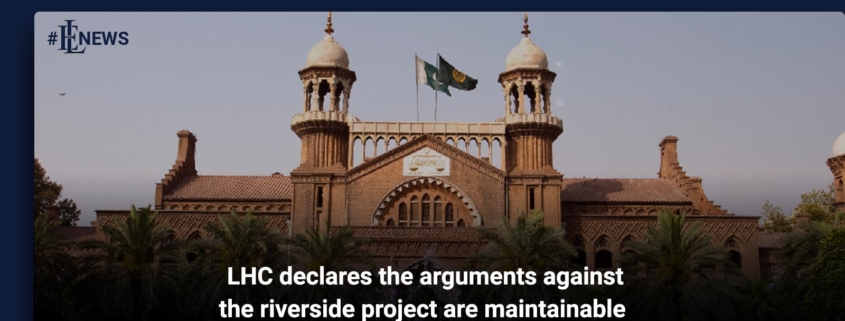LHC declares the arguments against the riverside project are maintainable
LHC declares riverfront project pleas maintainable. The Punjab government’s opposition to the Ravi Riverfront Urban Development Project (RRUDP) was dismissed by Justice Shahid Karim of the Lahore High Court. He deemed the petitions against the RRUDP maintainable.
The government’s lawyer stated that the petitions and stay orders previously given became infructuous after the Ravi Urban Authority (Amendment) Ordinance 2021. Hence the judge had deferred his ruling on the maintainability argument.
In the meanwhile, the court has not issued a written ruling declaring the petitions to be admissible.
AGP Ahmad Awais claimed that they had vacated the court’s stay orders and the petitions were infructuous because had issued the modified ordinance to cover legal weaknesses. He further contended that the courts had no authority to become involved in policy decisions made by the government. The LHC rules that petitions opposing a riverfront development are maintainable.
As a result, the acquisition of property for the project had been halted because it did not meet legal and environmental standards. LHC declares the arguments against the riverside project are maintainable
Read more with EL news : LDA provides construction updates of underpasses and flyover projects
Farmers’ advocates Sheraz Zaka and Ahmad Rafay Alam, and others filed lawsuits to halt the project. The Ruda project’s land acquisition process was criticised by the petitioners who signed on to it.
They also questioned the legitimacy of the Land Acquisition Act, 1894’s prohibition on the use of force in acquiring land for commercial purposes. Others questioned the validity of an EIA prepared by an unlicensed consultant. LHC declares the arguments against the riverside project are maintainable.
Hearing on UET case
At UET’s request, the LHC stopped an attempt to evict Assistant Professor Dr Tanvir Qasim from his official house at the university.
Qasim filed a lawsuit against the Campus of Engineering and Technology (UET) for denying him a house in the university community.
In compliance with the court’s order, the eviction was put on hold and was sent to the UET house allocation committee for a decision within a month.
Keep up with Estate Land Marketing for news and updates.




Leave a Reply
Want to join the discussion?Feel free to contribute!